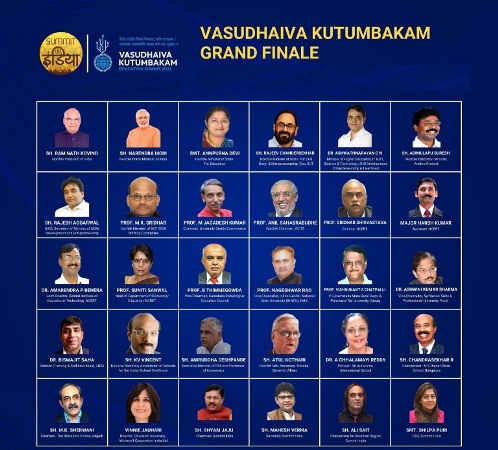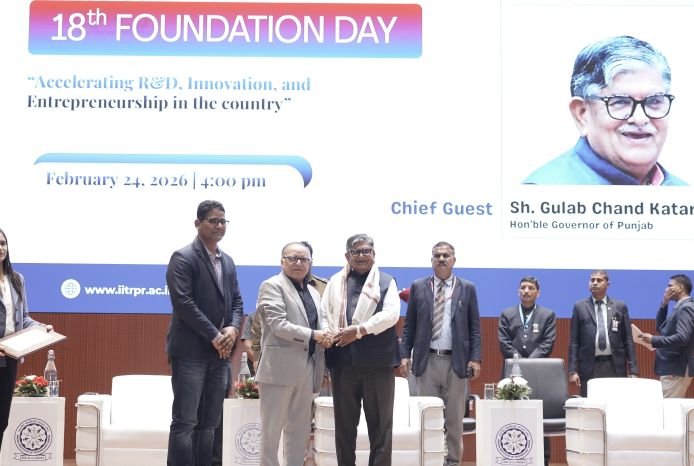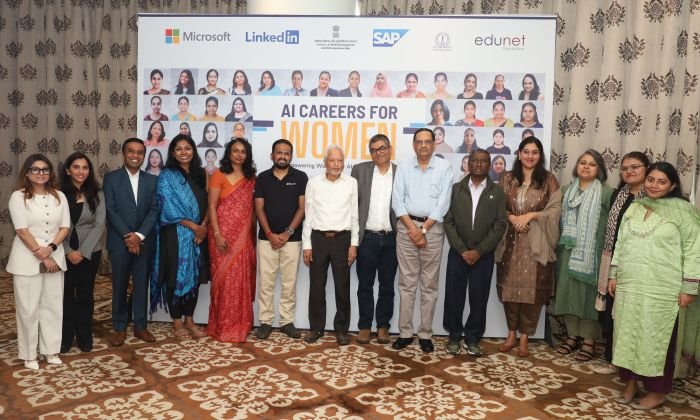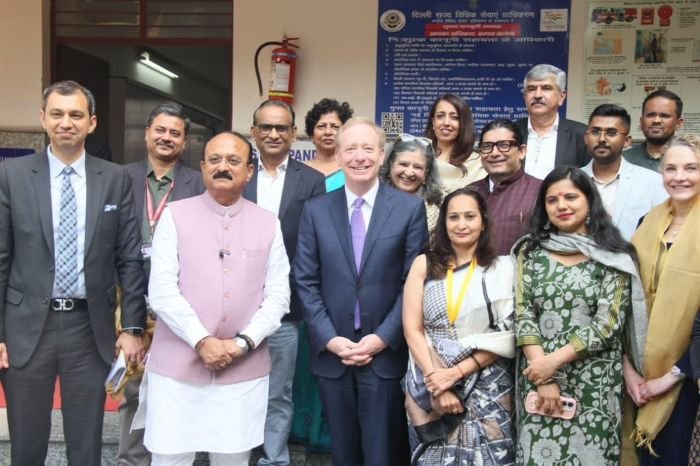
The Summit spanning over 12 weeks had 14 panel discussions, 125 speakers and close to half a million audience members. It concluded on April 9
Vasudhaiva Kutumbakam Education Summit 2022, organized by Summit India in association with Tech Avant-Garde (TAG), hosted its finale session on April 9th, 2022. The session marked the end of the three-month long summit. Over a course of 14 weeks, illustrious speakers from the country participated in panel discussions and shared insights on NEP2020, hybrid learning and digital transformation of education.
The three-month summit featured a range of speakers across the board and they offered varied and in depth insights into the evolving Indian education systems. Several members from the education ministry discussed future plans and the importance of NEP2020. Educationists and school administrators discussed the challenges of the last two years and how hybrid learning is the future of a post pandemic world. Several technocrats and industry leaders also spoke about the key role they will play in digitally transforming India’s education system. These varied perspectives offered the audience a 360 view of the education landscape and what lies ahead.
Shilpa Puri, CEO of Summit India commented, “Our education is at a crossroads currently, we are uncertain how to reopen and go back to older teaching methodology. Some may choose physical classes while others may choose online or hybrid. We conducted this event as a guide for decision makers as the education sector is going through 180-degree change. Quoting our Prime Minister, Shri Narendra Modi ji -NEP2020 will give a new direction to 21st century India. We are going to experience a series of shifts. Shift from knowledge acquisition to knowledge management, consumerism to ecological sustainability, gender isolation to gender appreciation. The only way to manage these shifts is to embrace NEP2020 as we move from physical classes to hybrid learning. We had invited stellar speakers to enlighten the audience. We are happy that all stakeholders have benefited from this summit.”
Commenting on the success of the summit, Founder-CEO TAG of Ali Sait who is also the Chairperson for Southern Region, Summit India said, “This summit was conducted over 3 months with 14 episodes, 125 speakers and close to 100000 audience members. We touched upon key topics like NEP2020, digital transformation and hybrid learning. A galaxy of prominent speakers shared their messages at our summit. We also had prominent educationists, thought leaders, principals and teachers sharing their insights. We are thankful to the speakers, audience and organizers for making this event a huge success in these difficult times where reimagining education is inevitable. We hope the insights from this event will help us become future ready.”
The closing episode of the Summit like the inaugural was packed with video message from key Government ministers, administrators and others. The summit received messages The President of India, Ram Nath Kovind, followed by a recorded speech by the Prime Minister of India, Narendra Modi. The event also had recorded messages from other dignitaries like Annapurna Devi, Minister of state for education, Rajeev Chandrasekhar, Minister of state for skill development & Entrepreneurship & IT, Dr. Ashwathnarayan C. N, Karnataka Minister of higher education, IT and BT, Science and Technology, Skill Development, Entrepreneurship and Livelihood, Adimulapu Suresh, Education Minister, Andhra Pradesh, Rajesh Aggarwal, (IAS) Secretary of Minister Of skills development and Entrepreneurship.
Mahesh Verma, secretary, Summit India gave the inaugural speech, while as Shyam Jaju Chairman Summit India gave the keynote address and Shilpa Puri, CEO, Summit India gave the welcome address. Key speakers at the event included Prof. M.K Sridhar, member of NEP 2020 Drafting Committee, Prof. M Jagdesh Kumar, Chairman, University Grants Commission, Prof. Anil Sahasrabudhe, Chairman AICTE, Prof. Shridhar Shrivastava, Director, NCERT, Major. Harsha Kumar, Secretary, NCERT, Shyam Jaju, Chairman, Summit India, Dr. Amarendra P Behera, Joint Director, Central Institute of Education Technology, NCERT, Prof. Suniti Sanwal, Head of Department Of Elementary Education, NCERT, Prof. B Thimme Gowda, Vice Chairman, Karnataka state Higher Education Council, Prof. Nageshwar Rao, Vice Chancellor, Indira Gandhi, National Open University (IGNOU), Delhi, Prof. Vishukant S Chatpalli, V C, Karnataka State Rural Development & Panchayat Raj university Gadag, Dr. Ashwini Kumar Sharama, Vice Chancellor, Symbiosis Skills & Professional University, Pune, Dr. Biswajit Sharma, Director (Training and skill education ), CBSE, K.V. Vincent, National Secretary Association of Schools for the India school Certificate, Aniruddha Deshphande, Executive Member of RSS and Professor of Economics, Atul Kothri, Hon’ble National secretary, Shiksha Sanskriti utthan, Dr. A Chhalamayi Reddy, Principal Sri Aurobindo International school, Chandrashekar R, Chairperson – MS Dhoni, Bengaluru, M.K. Sherwani, chairman, The Blossom School, Aligarh, Vinnie Jauhari, Director, Education Advocacy, – Microsoft soft corporation India Ltd.
Dr Ashwath Narayan C.N., Minister of Higher Education, IT and BT, Science and Technology, Skill Development, Entrepreneurship and Livelihood, who addressed the session said, “Education has existed for centuries since time immemorial, either in formal or informal ways. This century will focus on knowledge based economy. Now to be the best of the best, working knowledge and skill development makes a huge difference. Comprehensive learning is very important today. We have been working towards enhancing the quality of education. NEP2020 has come at the right time. Earlier there was little flexibility, everything was prescribed. We are changing that now, our education will be on par with developed countries. Through the right and quality education we can empower our students to compete with the rest of the world. Whether our students become employers or employees in the future, the right education will make a difference.”








